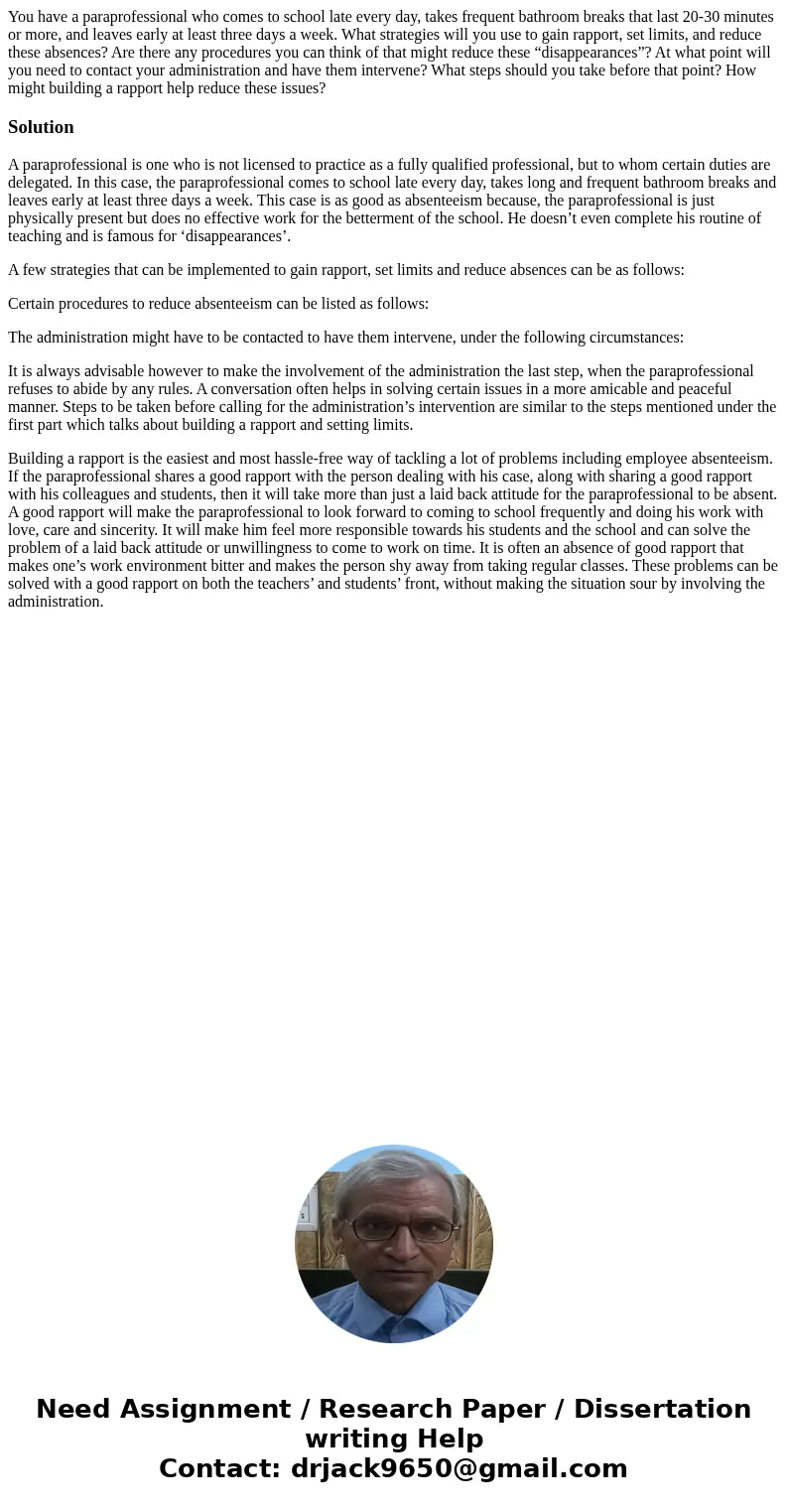You have a paraprofessional who comes to school late every d
You have a paraprofessional who comes to school late every day, takes frequent bathroom breaks that last 20-30 minutes or more, and leaves early at least three days a week. What strategies will you use to gain rapport, set limits, and reduce these absences? Are there any procedures you can think of that might reduce these “disappearances”? At what point will you need to contact your administration and have them intervene? What steps should you take before that point? How might building a rapport help reduce these issues?
Solution
A paraprofessional is one who is not licensed to practice as a fully qualified professional, but to whom certain duties are delegated. In this case, the paraprofessional comes to school late every day, takes long and frequent bathroom breaks and leaves early at least three days a week. This case is as good as absenteeism because, the paraprofessional is just physically present but does no effective work for the betterment of the school. He doesn’t even complete his routine of teaching and is famous for ‘disappearances’.
A few strategies that can be implemented to gain rapport, set limits and reduce absences can be as follows:
Certain procedures to reduce absenteeism can be listed as follows:
The administration might have to be contacted to have them intervene, under the following circumstances:
It is always advisable however to make the involvement of the administration the last step, when the paraprofessional refuses to abide by any rules. A conversation often helps in solving certain issues in a more amicable and peaceful manner. Steps to be taken before calling for the administration’s intervention are similar to the steps mentioned under the first part which talks about building a rapport and setting limits.
Building a rapport is the easiest and most hassle-free way of tackling a lot of problems including employee absenteeism. If the paraprofessional shares a good rapport with the person dealing with his case, along with sharing a good rapport with his colleagues and students, then it will take more than just a laid back attitude for the paraprofessional to be absent. A good rapport will make the paraprofessional to look forward to coming to school frequently and doing his work with love, care and sincerity. It will make him feel more responsible towards his students and the school and can solve the problem of a laid back attitude or unwillingness to come to work on time. It is often an absence of good rapport that makes one’s work environment bitter and makes the person shy away from taking regular classes. These problems can be solved with a good rapport on both the teachers’ and students’ front, without making the situation sour by involving the administration.

 Homework Sourse
Homework Sourse